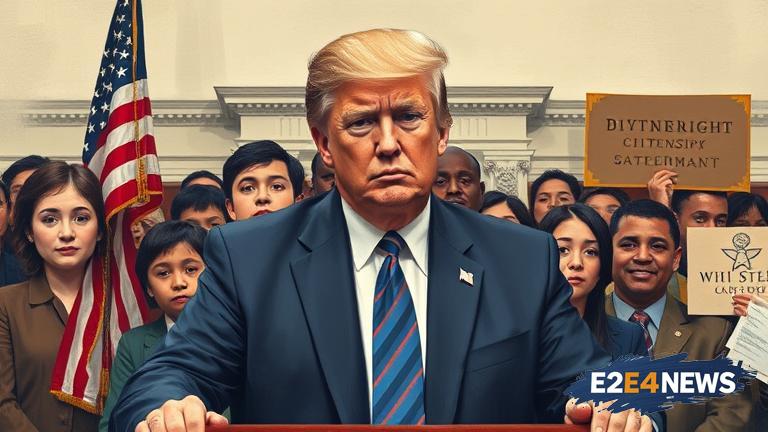A federal judge in New Hampshire has made a landmark decision, issuing a nationwide block on the Trump administration’s order to restrict birthright citizenship. This move has significant implications for immigration policies in the United States. The order, which was announced in August, aimed to limit the number of individuals who could claim birthright citizenship. The Trump administration argued that the order was necessary to prevent fraud and abuse of the system. However, opponents of the order claimed that it was an attempt to undermine the 14th Amendment of the US Constitution, which guarantees citizenship to all individuals born in the United States. The judge’s decision has been hailed as a major victory by immigrant rights groups, who argue that the order would have had a disproportionate impact on marginalized communities. The order would have required individuals to prove that they are in the United States legally in order to claim citizenship for their children. This would have created significant barriers for many individuals, particularly those who are undocumented or have uncertain immigration status. The judge’s decision is not the final word on the matter, as the Trump administration is likely to appeal the ruling. The case is expected to make its way to the Supreme Court, where the justices will have the final say on the matter. The debate over birthright citizenship is a contentious one, with many arguing that it is a fundamental right that should be protected. Others argue that it is a privilege that should be reserved for those who are in the United States legally. The issue has significant implications for the upcoming presidential election, as many candidates have weighed in on the issue. The Trump administration has made immigration a central plank of its platform, and the issue is likely to remain a major point of contention in the months to come. The judge’s decision has also sparked a heated debate about the role of the judiciary in shaping immigration policy. Some argue that the judge’s decision is an example of judicial overreach, while others see it as a necessary check on the executive branch’s power. The case has also highlighted the complexities of immigration law, which can be difficult to navigate even for those who are familiar with the system. As the case moves forward, it is likely to have significant implications for individuals and families across the United States. The judge’s decision has provided a sense of relief for many, but it is unclear what the ultimate outcome will be. The Trump administration has vowed to continue fighting for the order, and the issue is likely to remain a major point of contention in the months to come.
